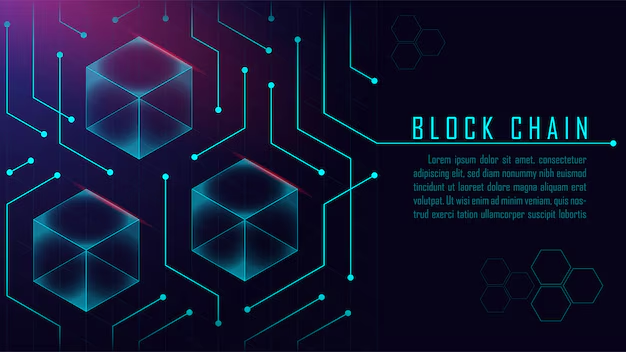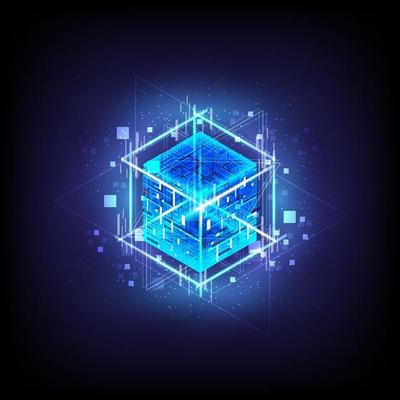How to Become a Blockchain Developer

Learn Blockchain Fundamentals
Understanding the foundational concepts of blockchain is essential. Focus on topics like distributed ledgers, consensus mechanisms (e.g., Proof of Work and Proof of Stake), and smart contracts.
Gain Programming Skills
Master programming languages such as:
- Solidity: For Ethereum-based smart contracts.
- Python and JavaScript: For creating blockchain applications and integrating APIs.
- Rust and Go: For high-performance blockchain networks like Solana and Polkadot.
Take Blockchain Developer Courses
Enroll in blockchain developer courses to gain structured knowledge. Many online platforms, such as Coursera and Udemy, offer specialized programs like Certified Blockchain Developer (CBD) certifications to help you build credibility.
Build a Portfolio
Work on personal or open-source projects. Create smart contracts, develop dApps, or contribute to existing blockchain platforms. Showcase these projects to potential employers to demonstrate your skills.
Blockchain Developer Jobs and Vacancies

Blockchain developer jobs are on the rise, with organizations across industries seeking skilled professionals to integrate blockchain technology into their operations. Key sectors hiring blockchain developers include:
- Finance: Building decentralized finance platforms and payment systems.
- Healthcare: Securing patient data and enhancing interoperability.
- Supply Chain: Ensuring transparency and reducing fraud in logistics.
- Gaming: Developing play-to-earn models and NFTs.
Blockchain developer vacancies are listed on platforms like LinkedIn, Glassdoor, and specialized job boards. Roles vary from entry-level positions to senior blockchain architect roles, depending on experience and expertise.
Blockchain Developer Salary
Blockchain developers command some of the highest salaries in the tech industry, thanks to the specialized expertise required to design, implement, and maintain blockchain systems. This high demand and relatively low supply of skilled professionals drive competitive compensation packages across different experience levels.
- Entry-Level: Blockchain developers starting their careers can expect annual salaries ranging from $70,000 to $120,000 in global markets. In this phase, developers typically work on basic dApps, assist in coding smart contracts, or support blockchain testing teams.
- Mid-Level: With 3–5 years of experience, blockchain developers can earn between $120,000 and $180,000 annually. These roles often involve leading development teams, optimizing blockchain protocols, or designing smart contract logic for more complex applications.
- Senior-Level: Senior developers with advanced skills in blockchain architecture, enterprise integration, and protocol development can earn upwards of $180,000 annually. These roles demand a deep understanding of blockchain ecosystems, multi-chain interactions, and cutting-edge technologies like zero-knowledge proofs or layer-2 scaling.
In India, blockchain developer salaries reflect the growing demand for blockchain expertise:
- Entry-Level: ₹6,00,000–₹10,00,000 annually for freshers with foundational skills in blockchain.
- Mid-Level: ₹12,00,000–₹20,00,000 annually for developers with hands-on experience in projects like DeFi, NFTs, or supply chain solutions.
- Senior-Level: ₹25,00,000+ annually for experts leading blockchain innovations in fintech, gaming, and enterprise blockchain adoption.
Factors Influencing Blockchain Developer Salaries
- Geographic Location: Developers in tech hubs like Silicon Valley, New York, or Bangalore typically earn more due to higher demand and cost of living.
- Industry: Roles in finance, healthcare, or enterprise-level applications often offer higher salaries compared to startups or small-scale projects.
- Skillset: Expertise in specific blockchain platforms (e.g., Ethereum, Solana, Hyperledger) or programming languages (e.g., Solidity, Rust) can significantly increase earning potential.
- Certifications: Certified professionals often stand out in the hiring process, securing higher pay due to their validated expertise.
Certified Blockchain Developer

A certified blockchain developer is a professional who has completed specialized training programs or earned certifications to validate their skills in blockchain development. Certifications demonstrate proficiency in critical areas such as blockchain architecture, smart contract programming, and enterprise blockchain integration, making candidates more attractive to employers.
Benefits of Certification
- Improved Employability: Certifications from recognized organizations like Blockchain Council, IBM, or ConsenSys provide credibility, assuring employers of your technical capabilities.
- Industry Relevance: Certification courses are often updated to reflect the latest trends and technologies in blockchain, keeping your skills aligned with industry demands.
- Higher Salary Potential: Certified developers often negotiate higher salaries due to their verified expertise.
- Access to Networks: Many certification programs include access to professional networks, opening doors to job opportunities, collaborations, and mentorship.
Popular Blockchain Developer Certifications
- Certified Blockchain Developer (CBD): Offered by Blockchain Council, this certification covers blockchain basics, smart contracts, and dApp development.
- IBM Blockchain Foundation Developer: Focuses on building blockchain applications using Hyperledger Fabric and other IBM blockchain tools.
- Certified Ethereum Developer: Provided by ConsenSys, this program emphasizes Ethereum-based applications, including smart contracts and decentralized finance (DeFi).
- Certified Hyperledger Developer: Ideal for those focusing on enterprise blockchain solutions, with training on Hyperledger Fabric and its ecosystem.
How to Get Certified
- Research Certification Programs: Choose a certification that aligns with your career goals and technical interests.
- Complete Prerequisites: Some programs may require a basic understanding of programming or blockchain concepts.
- Enroll in a Course: Sign up for an online or offline program from a reputable platform like Coursera, Udemy, or Blockchain Council.
- Practical Projects: Ensure the program includes hands-on projects to build a portfolio of real-world blockchain applications.
- Pass the Exam: Most certifications require passing a final exam to validate your knowledge and skills.
A certification can be a stepping stone to lucrative blockchain developer roles, equipping you with the expertise and credentials to thrive in a competitive field.
Hiring Blockchain Developers

Why Hire Blockchain Developers?
Blockchain developers play a pivotal role in transforming traditional systems into modern, decentralized solutions. They are not just coders but innovators who design and implement systems that prioritize transparency, security, and efficiency.
- Innovation and Efficiency:
Blockchain developers enable organizations to streamline processes, eliminate intermediaries, and reduce operational costs. By leveraging smart contracts, they automate tasks that traditionally require manual oversight, such as payments or compliance checks. - Security and Scalability:
In a world where data breaches are increasingly common, blockchain developers ensure the implementation of robust security protocols. They design decentralized systems resistant to tampering and fraud, safeguarding sensitive data and financial transactions. - Tailored Solutions:
Every business has unique requirements. Blockchain developers analyze organizational needs and craft custom solutions, whether it’s creating a private blockchain for internal processes or building decentralized applications (dApps) for end-users. - Cross-Industry Applications:
Blockchain isn’t limited to cryptocurrencies. Developers are driving innovations in supply chain management, healthcare data sharing, voting systems, gaming, and decentralized finance (DeFi). Hiring blockchain developers equips organizations with the expertise needed to tap into these versatile applications.
How to Hire a Blockchain Developer?
Finding and hiring skilled blockchain developers requires a strategic approach due to the specialized nature of their skills.
- Define Your Needs:
Determine the scope of your project. Are you building a dApp, implementing smart contracts, or creating an entirely new blockchain protocol? The complexity of your needs will dictate the level of expertise required. - Post Targeted Job Listings:
Utilize blockchain-specific platforms like CryptoJobs or Blocktribe to reach candidates familiar with the industry. For broader outreach, post on general job boards like LinkedIn, Indeed, and Glassdoor. Clearly outline the technical skills, tools, and experience you’re looking for. - Look for Proven Experience:
Evaluate candidates’ portfolios for completed blockchain projects. This could include smart contract development, dApps, or contributions to open-source blockchain platforms. Real-world examples of their work demonstrate practical expertise and problem-solving abilities. - Assess Technical Skills and Certifications:
Look for proficiency in blockchain programming languages like Solidity, Rust, or Go. Certifications such as Certified Blockchain Developer (CBD) or IBM Blockchain Professional provide additional assurance of their capabilities. - Conduct a Practical Test:
During the interview process, include a technical assessment. Assign a task relevant to your project, such as writing a simple smart contract or debugging a blockchain application, to gauge their hands-on skills. - Leverage Hiring Platforms:
- Freelancers: Platforms like Toptal, Upwork, and Freelancer are excellent for finding blockchain developers for short-term or project-based work.
- Full-Time Roles: LinkedIn, Glassdoor, and AngelList are ideal for sourcing candidates seeking long-term employment.
- Cultural Fit and Communication:
Blockchain projects often involve collaboration with multidisciplinary teams. Ensure the candidate can communicate complex ideas clearly and work effectively with non-technical stakeholders.
The Role of Blockchain Developers in Technological Innovation

Blockchain developers are at the forefront of the tech revolution, shaping how industries operate and interact. Their work underpins the transition from centralized systems to decentralized architectures, unlocking new possibilities in transparency, security, and efficiency.
- DeFi and Cryptocurrencies: Developers are driving advancements in decentralized finance, enabling peer-to-peer lending, trading, and asset management without intermediaries.
- Supply Chain Transformation: Blockchain solutions provide end-to-end visibility in supply chains, ensuring transparency and reducing fraud.
- Healthcare Innovation: Developers build systems for secure, decentralized sharing of medical records, improving patient care while protecting privacy.
- Gaming and NFTs: By integrating blockchain, developers create immersive gaming experiences and establish marketplaces for non-fungible tokens (NFTs), revolutionizing digital ownership.
Whether you’re a business looking to innovate or a developer seeking opportunities, the role of blockchain professionals is indispensable in shaping a decentralized future. Their expertise isn’t just an asset—it’s a necessity for staying ahead in an increasingly blockchain-driven world.
Frequently Asked Questions (FAQs)
Why should I hire a blockchain developer for my project?
Hiring a blockchain developer ensures you have the expertise to design secure, scalable, and transparent decentralized solutions tailored to your business needs. They can streamline processes, enhance security, and build innovative systems using blockchain technology.

